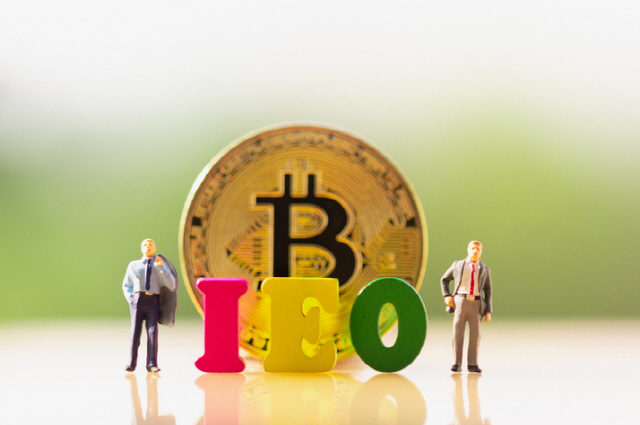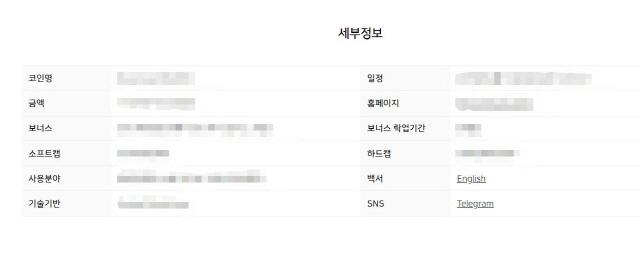
As such big overseas crypto exchanges as Binance and OKEx have shown their own IEO (initial exchange offering) platforms, the IEO is emerging as a trend. Korea is no exception. Korean exchanges like Coinzest and Cashierest are also beginning to conduct initial exchange offerings. Some exchanges like Tokenman and Chainb claim to specialize in IEOs.
The most striking difference between ICOs and IEOs is whether the exchange plays the role of a verifier. Investors who are fed up with indiscreet ICOs left the markets and new blockchain projects find it difficult to raise funds. Problems of information asymmetry erupted between potential investors and projects eager for investment and confidence between them collapsed. Crypto exchanges managed to seize the opportunity.
Issue 1. Are verifications proper?
What exchanges emphasize while publicizing IEO projects is that “we scrutinized closely.” Participants in an IEO carry out investment with confidence in the exchange. However, detailed information about projects conducted by some IEOs is substandard. Such data as lockup period, information on tokens and utilization are contained but they are close to a mere information delivery rather than “post-verification results.” It’s hard to find even contents that should have been contained in a basic investment prospectus like who scrutinized the project, what are the exchange’s opinions and how risky investment is. A blockchain industry official said, “Exchanges only pay attention to token sales and listing. There are few, if any, who identify how the project is going actually.”

An official at a project team who claims to have considered carrying out an IEO in Korea recently said, “A certain exchange demanded IEO listing fees even before verifying our project. As even smaller exchanges engage in IEOs competitively, they just focus on looking for new customers rather than verifications.” Kwon Oh-hun, lawyer with law firm Oh Kims, raised questions about whether IEO verifications are credible, saying, “Many exchanges claim to have projects screened but some of them fail to disclose such procedures as auditing transparently.”
Issue 2. What if an IEO project is a scam?
Should exchanges assume responsibility if a certain project turns out to be a scam after the IEO? Investors appear to find it not easy to hold the pertinent exchange accountable. In the web page introducing IEOs, several exchanges state that “token purchases take place between the project team (issuer) and investors and exchanges are neither sellers nor those directly involved in transactions.” “It’s unclear which should be responsible if an IEO project gets involved in fraud controversy,” said lawyer Kwon, adding that “exchanges could merely claim to have sold tokens on consignment and this doesn’t mean that they will assume responsibility.”
Investors have to prove that exchanges are faulty in person to hold them responsible. Lee Jin-young, lawyer with law firm Jeongse, says, “Investors can make an exchange take responsibility through civil lawsuits.” “In this case, investors should prove that the exchange was aware or able to know that the pertinent project was a scam.”
Issue 3. Boss-subordinate relationships?
Exchanges are trying to make fortunes through IEOs using their brands but also appear to care about keeping project teams at a distance. Aside from the success or failure of an IEO project, they want to secure stable profits. “Detailed contents of IEO contracts differ, depending on project teams. Most teams pay expenses for IEO progress, marketing and promotion in time for signing contracts,” a blockchain industry analyst said. Nevertheless, exchanges distance themselves from IEO projects. Some exchange state in their IEO-related announcements that “inquiries about tokens must be made to the project team (issuer) directly, not the exchange.” Lawyer Kwon said, “Since exchanges are more powerful in IEOs, project teams must check possible unfair deals and other problems properly.”

/hyun@decenter.kr
- 사동석 기자
- sahds@dcenter.kr








![[이번주 코인스케줄]ARB 등 락업 해제, 토큰 2049·비트코인 반감기도](https://newsimg.sedaily.com/2024/04/15/2D7X8390NO_1_s.png)

![[점심브리핑] 이란, 이스라엘 본토 공습…가상자산 가격 폭락](https://newsimg.sedaily.com/2024/04/15/2D7X7KAWDD_1_s.png)


![[도예리의 NFT 레이더]성수동에 'NFT 햄버거집'이 생긴 이유](https://newsimg.sedaily.com/2024/03/21/2D6Q0WPYBT_1_s.jpg)
![[점심브리핑] 바이낸스US, 前 뉴욕 연준 임원 합류](https://newsimg.sedaily.com/2024/04/17/2D7Y4EB722_1_s.png)








